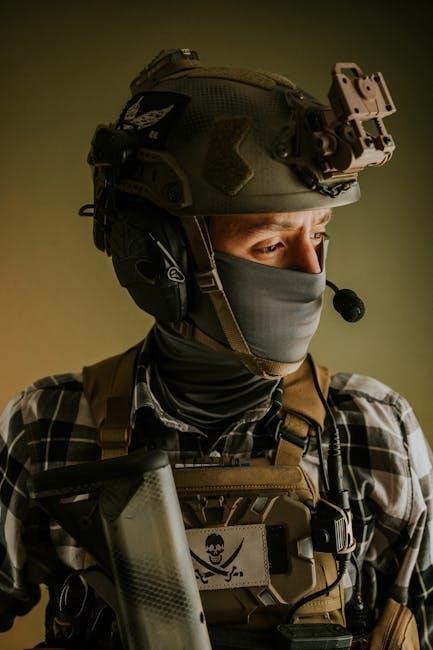The French Special Forces, known for their elite skills and covert operations, were showcased in a 2023 Paris exhibition, offering insights into their history and modern roles.
Overview of the French Special Forces
The French Special Forces are elite military units trained for high-risk missions, including counter-terrorism, direct action, and special reconnaissance. Known for their precision and adaptability, these forces operate under the French Ministry of Defense. Recent exhibitions, such as the one at the Musée de l’Armée in Paris, have highlighted their history and modern capabilities. Demonstrations by units like the 13e RDP during innovation seminars showcase their advanced tactics and equipment. Their role in international operations and collaboration with allied forces underscores their strategic importance. The French Special Forces are a cornerstone of national security, blending tradition with cutting-edge technology to address emerging threats effectively.
Historical Context and Evolution
The French Special Forces trace their origins to World War II, with units like the SAS (Special Air Service) and the Commandos d’Afrique laying the groundwork for modern special operations. Post-war, the Algerian War further shaped their tactics, emphasizing counter-insurgency and unconventional warfare. The 1970s saw the establishment of dedicated counter-terrorism units, such as the GIGN and the CPA 10, marking a shift toward specialized capabilities. Over the decades, these forces have evolved to address global threats, integrating advanced technology and training methods. Recent exhibitions and seminars, like the 2023 Paris exhibition, highlight their historical milestones and modernization efforts. The French Special Forces continue to adapt, ensuring their readiness for contemporary challenges while honoring their storied past.
Structure and Organization
French Special Forces are organized into specialized units like the 4e RHFS and CPA 10, operating under a unified command structure to ensure coordinated and effective operations.
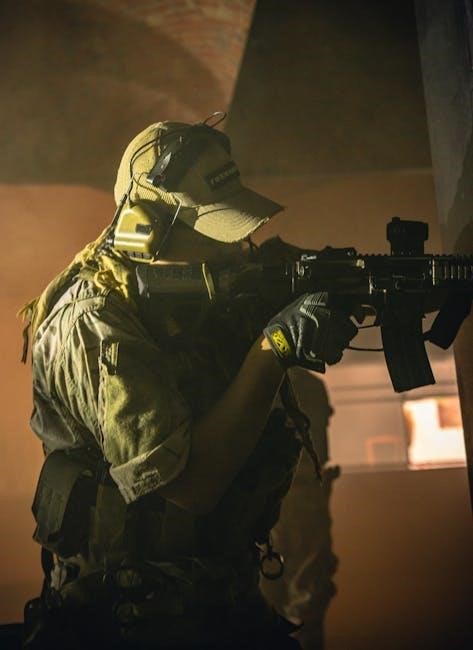
Command and Control Structures
The French Special Forces operate under a centralized command structure, ensuring seamless coordination between units like the 4e RHFS and CPA 10. This hierarchy enables rapid decision-making and strategic oversight, allowing specialized teams to execute missions effectively. The command structure is designed to adapt to diverse operational needs, from counter-terrorism to special reconnaissance. Public events, such as the exhibition at the Musée de l’Armée, highlight the importance of this organizational framework in maintaining operational excellence. The structure also facilitates collaboration with international allies, as seen in joint exercises and operations. This centralized approach ensures that French Special Forces remain a cohesive and formidable force, capable of addressing modern security challenges with precision and efficiency.
Key Units and Their Roles
The French Special Forces comprise elite units such as the 4e Régiment d’Hélicoptères des Forces Spéciales (4e RHFS) and the Commando Parachutiste de l’Air (CPA 10). The 4e RHFS specializes in helicopter operations, providing air support for missions. CPA 10, an airborne commando unit, excels in parachute operations and direct action. These units are integral to counter-terrorism, special reconnaissance, and high-risk missions. Their roles include conducting covert operations, gathering intelligence, and executing precision strikes. Public exhibitions, like the one at the Musée de l’Armée, highlight their capabilities, showcasing their adaptability and expertise. These specialized units are trained to operate in diverse environments, ensuring France’s ability to respond effectively to global threats. Their contributions are vital to national security and international operations, making them a cornerstone of French military strategy.
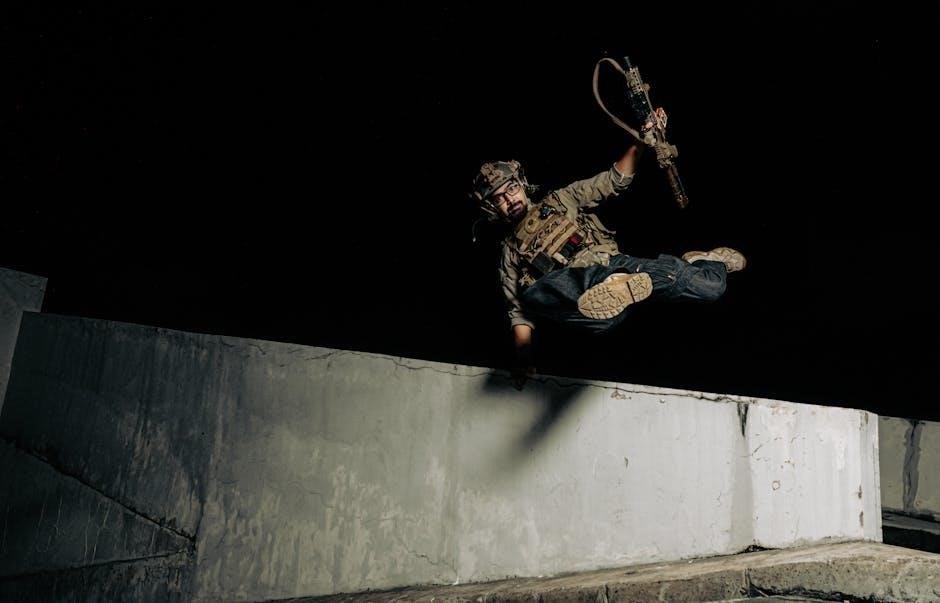
Recruitment and Training
The French Special Forces launched a recruitment campaign to strengthen their ranks, emphasizing rigorous selection and advanced training to prepare operatives for modern, complex threats.
Selection Process for Candidates
The French Special Forces have implemented a rigorous recruitment campaign to expand their elite units. Candidates undergo intense physical and mental evaluations to ensure they meet the high standards required for special operations. The selection process emphasizes endurance, strategic thinking, and adaptability, reflecting the demanding nature of their missions. This approach ensures that only the most capable individuals join the ranks, ready to handle the complexities of modern warfare and covert operations. The focus is on identifying operatives who can excel in high-pressure environments, ensuring the French Special Forces maintain their reputation for excellence and effectiveness in counter-terrorism and special reconnaissance tasks.
Advanced Training Programs
The French Special Forces engage in rigorous advanced training programs to maintain their elite status. These programs include specialized courses in counter-terrorism, parachute operations, and tactical maneuvers. The 13e RDP and CPA 10 units are known for their expertise in high-risk missions, developed through continuous training. Exercises like those at Martignas-sur-Jalle showcase their ability to adapt to modern threats. The Sofins seminar highlights innovations in equipment and tactics, ensuring operatives stay ahead in special operations. These programs emphasize precision, stealth, and strategic thinking, preparing soldiers for diverse mission scenarios. The integration of new technologies and methodologies ensures the French Special Forces remain a formidable force in global security operations, capable of handling the most critical challenges effectively. Their training is a testament to their commitment to excellence and operational readiness.
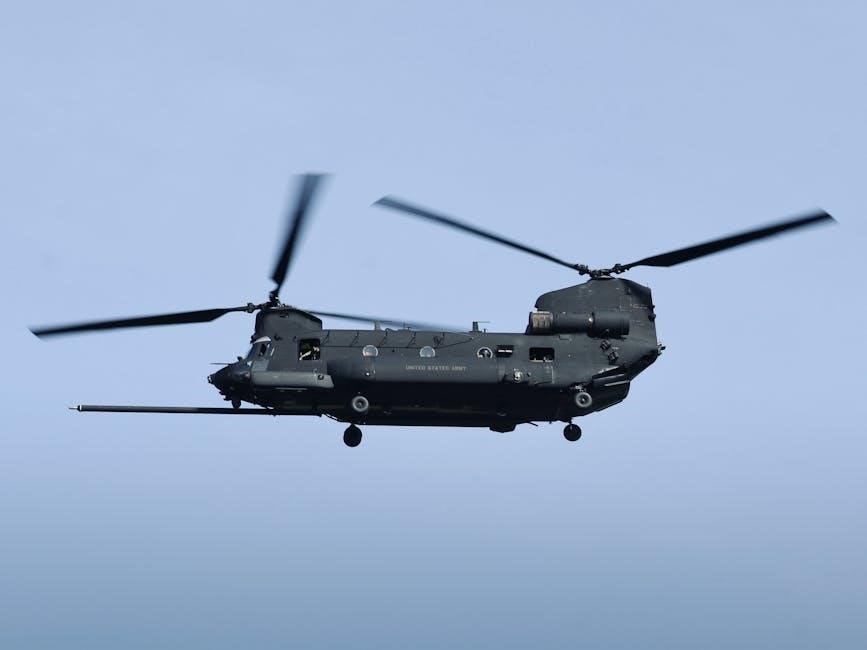
Operations and Missions
French Special Forces conduct high-stakes missions, including counter-terrorism, direct action, and special reconnaissance. Their operations often involve international collaboration, ensuring global security and adaptability to emerging threats.

Counter-Terrorism Operations
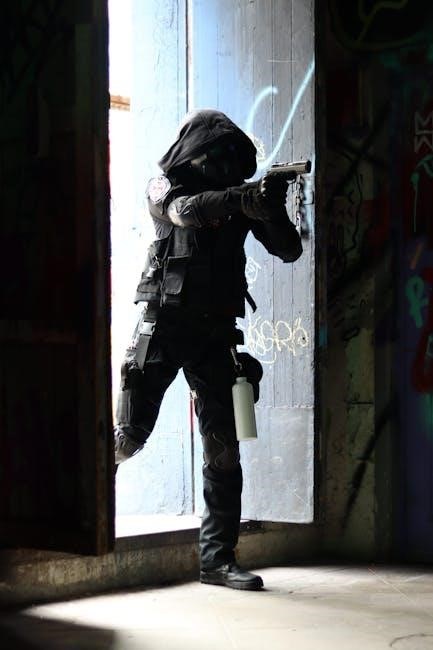
French Special Forces are renowned for their expertise in counter-terrorism, conducting high-risk missions to neutralize threats both domestically and internationally. Their operations often involve hostage rescues, intelligence gathering, and precision strikes against terrorist groups. Units like the 13e RDP and CPA 10 are at the forefront of these efforts, employing advanced tactics and specialized equipment. Recent exercises, such as those in Martignas-sur-Jalle, highlight their readiness to adapt to evolving threats. Their ability to operate covertly and effectively has solidified their reputation as a key component in global counter-terrorism efforts, ensuring the safety of civilians and national security.
Direct Action and Special Reconnaissance
French Special Forces excel in direct action and special reconnaissance, conducting missions that require precision and stealth. These operations often involve deep infiltration behind enemy lines to gather critical intelligence or execute targeted strikes. Units like the 4e RHFS, specializing in helicopter operations, enable rapid deployment for such tasks. Recent exercises in Gers and Barèges showcased their ability to conduct parachute insertions and establish forward operating bases. Their expertise in unconventional warfare allows them to operate in hostile environments, disrupting adversary operations and securing strategic objectives. These capabilities are essential for France’s national security and international missions, demonstrating the forces’ adaptability and lethality in modern conflict scenarios.
Equipment and Technology
French Special Forces utilize advanced firearms, specialized gear, and cutting-edge technology to enhance mission effectiveness, ensuring operational superiority in diverse environments and scenarios.
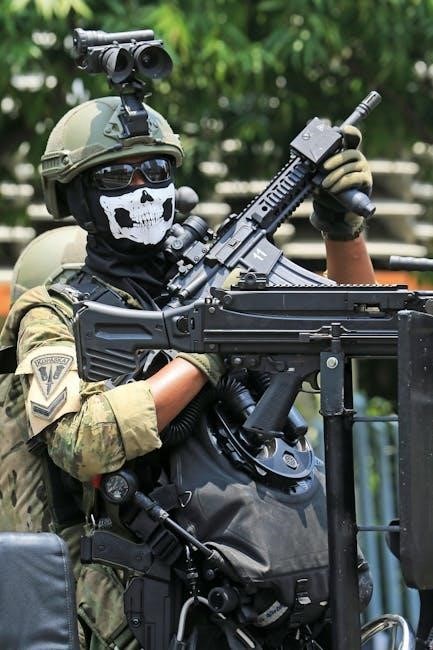
Firearms and Weaponry
The French Special Forces are equipped with a range of advanced firearms, including assault rifles, sniper rifles, and sidearms, tailored for precision and versatility in combat scenarios. Exhibitions like the one at the Musée de l’Armée in Paris have showcased their weaponry, highlighting the use of modernized equipment. Units such as the 13e RDP and CPA 10 are known to utilize specialized gear, ensuring operational effectiveness. Their arsenal is complemented by cutting-edge technology, including night vision devices and suppressors, enhancing stealth and tactical advantage. The focus on innovation in firearms reflects the French Special Forces’ commitment to maintaining superior capabilities in diverse operational environments.
Specialized Gear and Uniforms
French Special Forces utilize cutting-edge, specialized gear and uniforms designed for stealth, mobility, and operational efficiency; Exhibitions like the one at the Musée de l’Armée in Paris have highlighted their advanced equipment, showcasing lightweight, modular gear tailored for diverse missions. Uniforms are adapted to environments, featuring adaptive camouflage patterns for urban and natural settings. Units such as the 13e RDP and CPA 10 employ customized gear, including integrated communication systems and night vision devices. Their uniforms are designed to withstand extreme conditions, ensuring durability and comfort during prolonged operations. The focus on specialized gear underscores the French Special Forces’ commitment to operational readiness and adaptability in modern combat scenarios.
Technological Innovations in Special Ops
French Special Forces leverage cutting-edge technological innovations to enhance operational effectiveness. Exhibitions like the one at the Musée de l’Armée and events such as Sofins showcase their advanced equipment, including night vision devices, integrated communication systems, and lightweight drones for reconnaissance. These technologies enable real-time data sharing and improved situational awareness. Demonstrations by units like the 13e RDP highlight their use of modern gear, ensuring precision in missions. The integration of such innovations underscores the French Special Forces’ commitment to staying ahead in counter-terrorism and special operations, ensuring they remain highly effective in diverse and evolving threat environments.
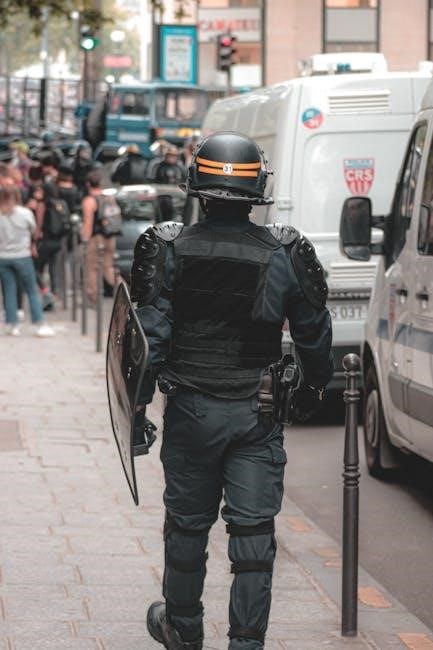
International Cooperation
French Special Forces collaborate with allied units, such as U.S. Special Forces, in joint exercises and operations, strengthening global counter-terrorism and security efforts through shared expertise and resources.
Collaboration with Allied Special Forces
French Special Forces actively collaborate with international allies, such as U.S. Special Forces, to enhance counter-terrorism and security operations. Joint exercises, like those involving the 3rd Special Forces Group, demonstrate shared commitment to global stability. These partnerships foster operational interoperability, enabling seamless coordination in multinational missions. The French units also participate in international events like SOFINS, showcasing innovations and strengthening ties with foreign special operations forces. Such collaborations not only improve tactical efficiency but also reinforce mutual trust and strategic alignment. By working together, allied special forces address emerging threats more effectively, ensuring a unified response to global security challenges.
Participation in International Exercises
French Special Forces regularly participate in international exercises to enhance interoperability and tactical proficiency. Events like SOFINS, a premier special operations seminar, showcase their capabilities and foster collaboration with allied forces. Demonstrations by units such as the 13e RDP highlight their expertise in counter-terrorism and direct action. These exercises often involve joint parachute operations, tactical maneuvers, and equipment testing, ensuring readiness for multinational missions. The 4e RHFS, based in Pau, has also conducted joint drills, reflecting France’s commitment to global security cooperation. Such participation strengthens bonds with international partners and ensures a unified response to emerging threats, showcasing the French Special Forces’ adaptability and professionalism on the global stage.
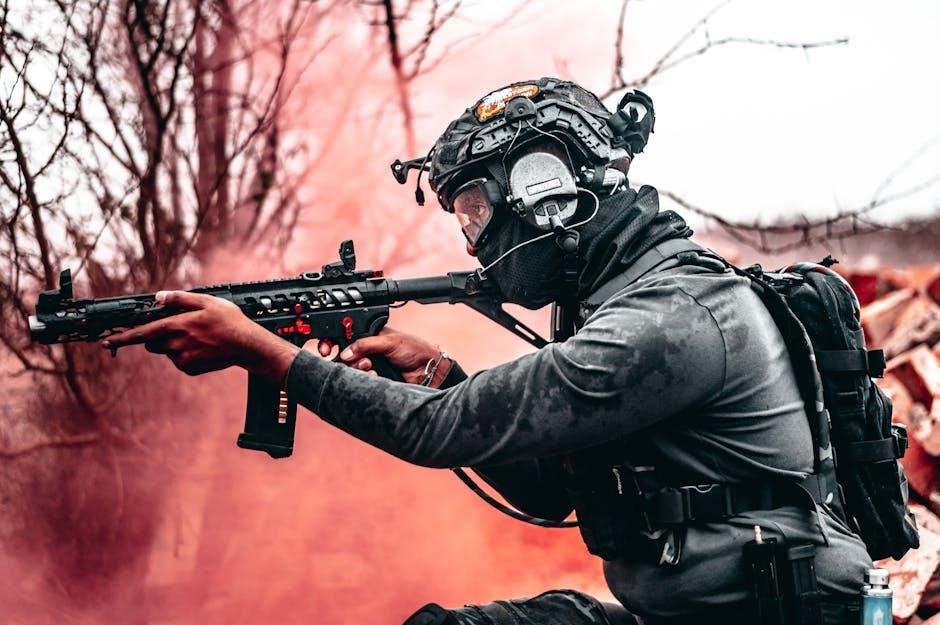
Public Perception and Media
The French Special Forces are viewed as elite units, with exhibitions like the 2023 Paris event showcasing their role in counter-terrorism, supported by media coverage and public interest.
Exhibitions and Public Events
The French Special Forces have been showcased in various public events, such as the 2023 exhibition at the Musée de l’Armée in Paris, which highlighted their history and modern operations. Demonstrations like the 4e RHFS helicopter regiment’s display in Gers and military exercises in Orthez have captivated audiences, offering glimpses into their capabilities. These events aim to foster public understanding and appreciation for the forces’ role in national security. Exhibitions often feature advanced equipment and real-life mission simulations, attracting both enthusiasts and potential recruits. Such initiatives not only promote transparency but also strengthen the bond between the Special Forces and the public, showcasing their professionalism and dedication to protecting France’s interests.
Media Coverage and Transparency
The French Special Forces often feature in media reports, balancing secrecy with public interest. Recent coverage includes interviews with veterans like Nicolas S., who shared insights into his 20-year career in the CPA 10. Media outlets highlight their role in counter-terrorism and international missions, showcasing their expertise. Exercises like Sofins and public demonstrations provide rare glimpses into their operations, fostering public trust. While their work remains classified, strategic media engagement helps maintain transparency, educating the public about their contributions to national security. This balanced approach ensures the forces remain respected yet mysterious, preserving their elite status while keeping the nation informed about their critical role.
Future Trends and Challenges
French Special Forces are modernizing tactics and equipment to counter emerging threats like cyber warfare and asymmetric conflicts, ensuring adaptability in a rapidly evolving global security landscape.
Modernization of Tactics and Equipment
The French Special Forces are actively modernizing their tactics and equipment to address contemporary security challenges. Recent exhibitions, such as the one at the Musée de l’Armée in Paris, have highlighted their integration of advanced technologies. Units like the 4e RHFS are adopting cutting-edge helicopters, while others experiment with new landing zones and specialized gear. These innovations reflect a focus on enhancing operational efficiency and adaptability. Additionally, the forces are refining their training methods to incorporate emerging threats and collaborative strategies. Such modernization efforts ensure the French Special Forces remain at the forefront of special operations, capable of responding effectively to evolving global threats.
Adapting to Emerging Threats
The French Special Forces are continuously evolving to counter emerging threats, emphasizing innovation and strategic adaptability. Recent exercises, such as those conducted by the 4e RHFS, demonstrate their ability to integrate advanced technologies and tactics. The Sofins seminar highlighted their focus on cutting-edge equipment and real-time mission simulations. These efforts reflect a proactive approach to addressing modern security challenges, including cyber threats and asymmetric warfare. By engaging in international collaborations and leveraging expertise from allied forces, the French Special Forces enhance their readiness to respond to diverse and dynamic threats. Their commitment to innovation ensures they remain effective in safeguarding national and global security interests. This adaptability is crucial as they prepare for future operational demands and unpredictable adversaries.
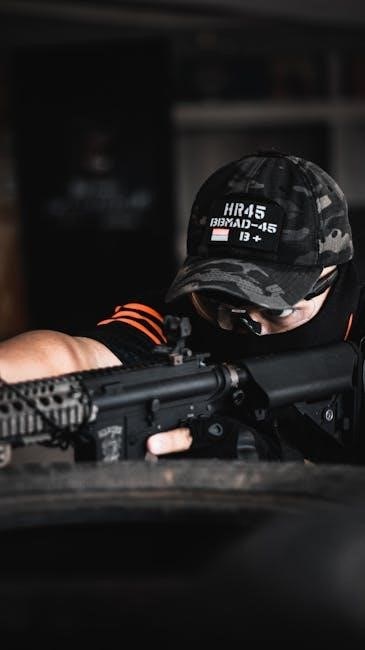
The French Special Forces are elite units renowned for their adaptability and innovation, ensuring national security through covert operations and international cooperation, embodying modern military excellence and strategic evolution.
The French Special Forces are elite military units known for their expertise in counter-terrorism, direct action, and special reconnaissance. Their operations often involve high-risk missions, requiring advanced training and specialized equipment. The forces have evolved historically, adapting to modern threats and technological advancements. Public exhibitions, like the one at the Musée de l’Armée, highlight their role and capabilities, fostering national pride. International collaboration with allied forces underscores their global impact. Continuous innovation in tactics and gear ensures their readiness for future challenges, making them a cornerstone of France’s defense strategy. Their contributions remain pivotal in maintaining national and international security, blending stealth, precision, and strategic excellence.
Final Thoughts on the Role of Special Forces
The French Special Forces play a pivotal role in safeguarding national security and international stability. Their expertise in counter-terrorism, direct action, and reconnaissance underscores their strategic importance. Exhibitions like the one at the Musée de l’Armée highlight their contributions, fostering public admiration. Recruitment efforts and participation in global exercises demonstrate their commitment to growth and collaboration. Technological advancements and specialized gear ensure their readiness for modern threats. Their ability to adapt to emerging challenges solidifies their role as a cornerstone of France’s defense. Public trust is maintained through controlled media transparency, balancing secrecy with necessary visibility. The French Special Forces embody a blend of precision, courage, and innovation, ensuring they remain a vital asset in an ever-evolving global landscape.
